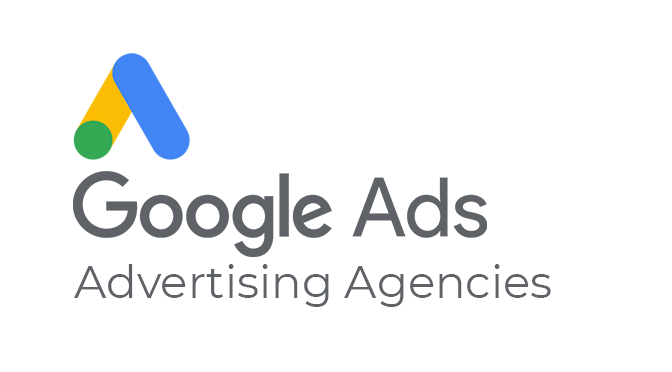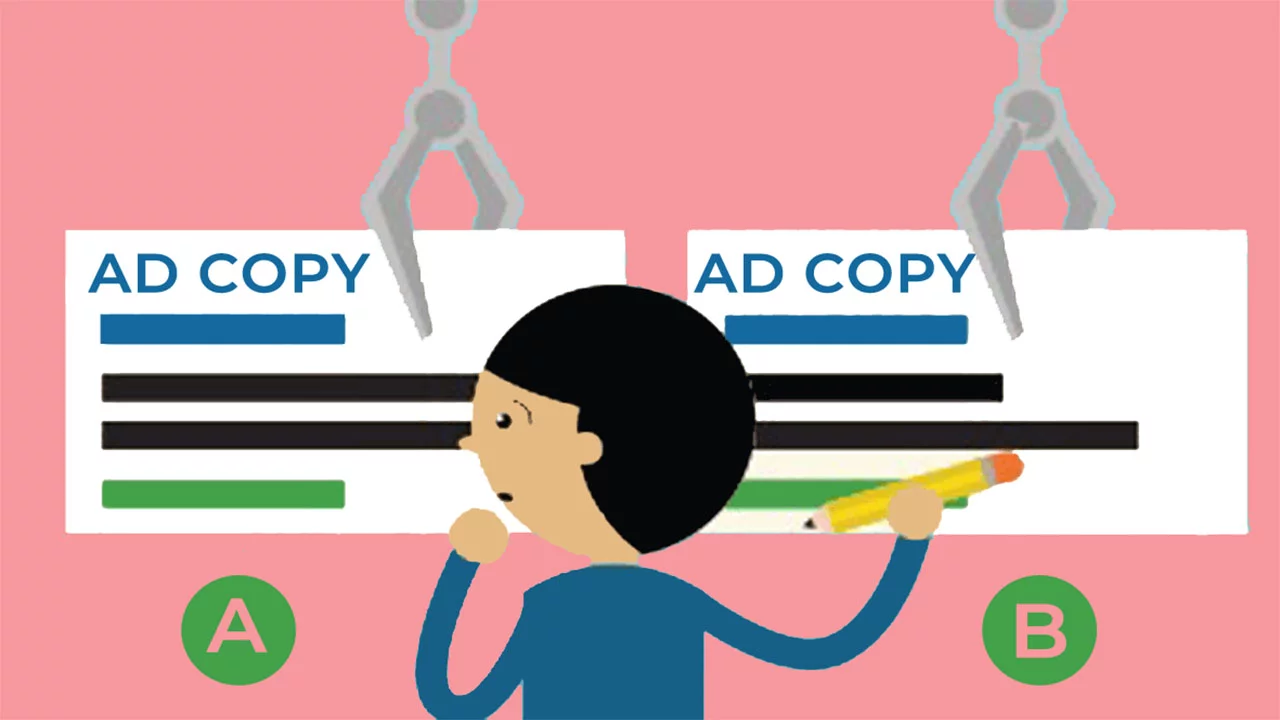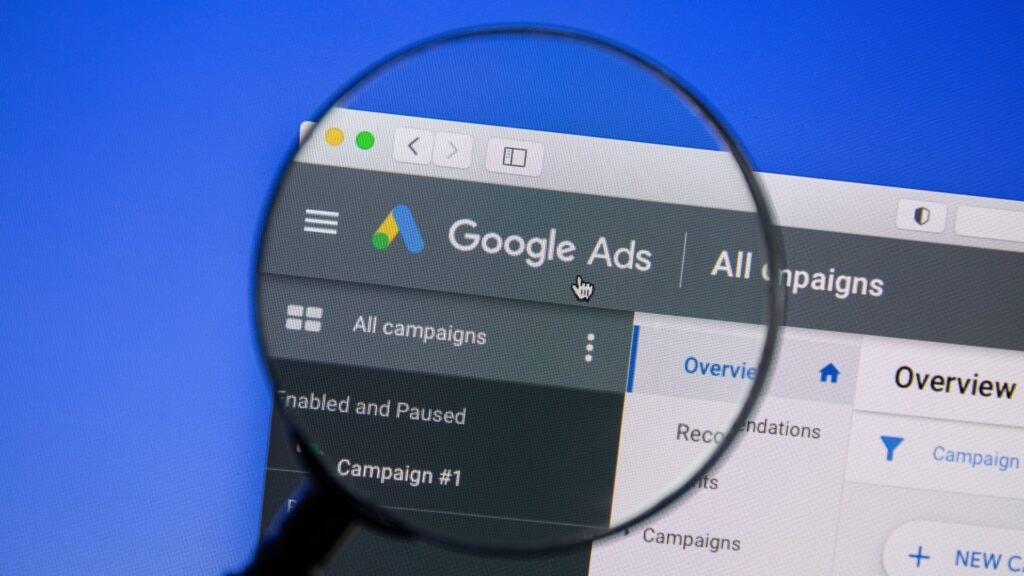In today’s digital landscape, leveraging Google Ads is a vital strategy for businesses aiming to grow and attract more customers. As one of the most powerful paid advertising platforms, Google Ads allows businesses to appear at the top of search results instantly, connecting them with their target audience when they are actively searching for products or services.

However, creating a successful Google Ads campaign requires more than just launching ads. This is where a professional Google Ads agency comes in. With expert knowledge, a Google Ads agency helps businesses maximize their digital marketing efforts, ensuring that ad budgets are spent effectively while driving conversions and business growth.
Why Google Ads is Crucial for Digital Marketing Success
With a massive 90% market share in the search engine space, Google dominates the world of digital advertising. This dominance means that businesses using Google Ads can tap into the most significant pool of potential customers, increasing the chances of visibility and success. PPC campaigns allow businesses to place their ads directly in front of users who are already searching for related products or services, leading to higher intent and better conversion rates.
Additionally, Google Ads campaigns offer real-time results. Unlike organic methods, paid search allows businesses to achieve immediate visibility, helping them stand out in a competitive market and drive sales quickly.
Understanding the Different Types of Google Ads Campaigns
To build a winning Google Ads campaign, it’s essential to understand the various types of ads available:
- Search Ads – These appear at the top of the Google search results page, targeting users based on search terms.
- Display Ads – Visual-based ads that appear across Google’s network of partner sites, ideal for brand visibility.
- Google Shopping Ads – Specifically for e-commerce businesses, these ads showcase product images, prices, and descriptions.
- Video Ads – Typically shown on YouTube and Google’s video network, these ads engage users through rich, multimedia content.
By tailoring the right mix of these ad campaigns, a Google Ads agency can help businesses effectively reach their target audience and achieve optimal results. Utilizing smart ad groups, companies can focus on different segments and maximize the performance of each type of ad.
Keyword Research: Laying the Foundation for a Successful Google Ads Campaign
Effective keyword research is the cornerstone of a successful Google Ads campaign. By targeting the right search terms, businesses can reach their right audience at the precise moment they’re searching for relevant products or services. This is where tools like Google Keyword Planner or Ahrefs come in. These tools help identify specific keywords that are both highly searched and relevant to your business, enabling you to craft ads that resonate with potential customers.
A solid keyword strategy should include a mix of short-tail and long-tail keywords. Short-tail keywords (e.g., “digital marketing”) are broader and attract more traffic but can be more competitive. Long-tail keywords (e.g., “digital marketing agency for franchises”) are more specific, often leading to better conversion rates because they target users with higher intent.
By balancing both types, a business can increase visibility and relevance in paid search campaigns, ensuring that ads reach users who are ready to take action.
Creating Compelling Ad Copy: Crafting Ads that Convert
Crafting compelling ad copy is critical for capturing the attention of your target audience and turning clicks into conversions. The ad copy must be engaging, clear, and highlight the unique value your business provides. By emphasizing your unique selling propositions (USPs), such as exclusive offers or key benefits, you differentiate yourself from competitors and give users a reason to choose your brand.

Additionally, tailoring your ad copy to resonate with the right audience is essential. Focusing on the pain points or needs of your target users ensures your message is both relevant and persuasive, ultimately leading to higher click-through rates and conversions.
Bidding Strategies for Maximum ROI
Choosing the right bidding strategy is essential to maximize your ROI and ensure your ad spend is used efficiently. There are several bidding methods available for Google Ads campaigns, each designed to meet different goals. Manual bidding gives businesses control over their bids for each keyword, allowing for fine-tuned adjustments. However, it can be time-consuming to manage.
Smart bidding, on the other hand, leverages machine learning to automatically optimize bids based on the likelihood of conversion. Strategies like target ROAS (Return on Ad Spend) help businesses focus on maximizing revenue, while enhanced CPC (Cost Per Click) adjusts bids to increase conversions without exceeding the budget.
By utilizing the right bidding strategy, businesses can optimize their ads for maximum efficiency. This leads to better targeting of the right audience and ultimately achieves the maximum ROI from their ad campaigns.
Optimizing Landing Pages for Better Conversions
A successful Google Ads campaign doesn’t end with a compelling ad. The landing pages users are directed to play a pivotal role in driving conversion rates. For maximum impact, these landing pages should be highly user-friendly and mobile-friendly, ensuring seamless navigation across all devices. A well-optimized landing page that matches the content and intent of the ad will keep users engaged and more likely to convert.

Additionally, the page must feature a clear and prominent call-to-action (CTA) that guides users toward taking the desired action, whether it’s making a purchase, filling out a form, or subscribing. Quick load times are also essential since slow-loading pages can significantly increase bounce rates. When landing pages are relevant, fast, and easy to use, they improve the overall user experience and significantly boost conversion rates.
Geo-Targeting: Reaching Your Local Audience Effectively
For businesses aiming to boost their local presence, geo-targeting is an essential tool. This feature enables businesses to focus on specific geographic areas, ensuring that their ads are seen by the right audience in the particular location where services or products are offered. Whether you’re running a local shop or a franchise, narrowing your audience through geo-targeting ensures that your ad spend is concentrated where it matters most.
By refining your audience targeting based on geography, you can boost conversion rates by attracting customers who are more likely to engage with your business due to proximity, making your campaigns more efficient and effective.
The Importance of Ad Testing and Variations
To maximize the effectiveness of your ad campaigns, it’s crucial to continuously run A/B tests on different ad variations. This process involves creating multiple versions of your ads and testing them to see which performs best with your target audience. By experimenting with different headlines, images, and call-to-actions, you can fine-tune your ads for better performance.
Continuous testing helps identify the winning elements in your ads, which can lead to significant improvements in conversion rates. In a competitive digital environment, running different ad variations and refining them over time ensures that your ads remain relevant, engaging, and optimized for success.
Utilizing Remarketing Campaigns to Re-engage Potential Customers
Remarketing campaigns are a powerful tool to reconnect with users who have previously interacted with your business but didn’t convert. By targeting these potential customers with tailored ads, you can remind them of the value your business offers and encourage them to complete their journey.
Google Ads agencies often use the customer match feature to re-engage users based on their past actions, such as website visits or email interactions. This data-driven approach helps target users more effectively, tapping into their user behavior and driving higher conversion rates by keeping your brand top of mind. Remarketing campaigns can significantly improve overall ROI by capturing warm leads and turning them into paying customers.
Tracking and Analyzing Performance with Google Analytics
Using Google Analytics is essential for tracking the success of your paid campaigns. This tool provides detailed insights into key metrics such as click-through rates (CTR), conversion rates, and overall ad performance. By monitoring these metrics, businesses can evaluate how well their Google Ads campaigns are engaging users and driving desired actions.

Beyond tracking, data analysis plays a crucial role in improving campaign effectiveness. By analyzing trends in user behavior, identifying which ads generate the most conversions, and understanding why some campaigns underperform, you can fine-tune your strategy for better results. Regularly reviewing Google Analytics data helps businesses optimize their ads, reallocate ad spend efficiently, and adjust targeting to maximize ROI, ensuring continued success for future campaigns.
Combining SEO with Google Ads for Greater Visibility
Combining SEO with Google Ads can provide businesses with a powerful advantage in search results. While Google Ads offer immediate visibility through paid search campaigns, strong SEO practices help boost organic rankings, making your business more credible and authoritative in the long term. Appearing in both organic search and paid listings not only increases your chances of being noticed by potential customers but also reinforces trust in your brand.
Together, these strategies ensure that your business has a broader presence across search engines, driving more traffic and improving the overall effectiveness of your digital marketing efforts.
Managing Ad Spend: How to Optimize Your Budget
Effective ad budget management is crucial to achieving the maximum ROI from your Google Ads campaigns. To get the most value out of your ad spend, businesses should continuously monitor performance and make adjustments to bids and targeting. Tools like Google Tag Manager can help track user interactions across different campaigns, ensuring that your budget is allocated to the highest-performing ads.

Additionally, using automated features such as smart bidding can further optimize ad spend by adjusting bids based on real-time data, helping businesses focus their budget on ads that are more likely to convert. With the right digital marketing strategy, you can effectively manage your ad budget, ensuring you reach the right audience while minimizing wasted spend.
How Mastodon Marketing Can Help You Drive Results?
At Mastodon Marketing, we specialize in optimizing Google Ads campaigns to help businesses drive more traffic, capture more customers, and significantly increase conversions. With our expertise in managing ad budgets, fine-tuning bidding strategies, and creating high-converting ad copy, we ensure that your campaigns achieve maximum performance.
Let Mastodon Marketing elevate your digital marketing strategy and unlock the full potential of Google Ads to drive real results for your business.



